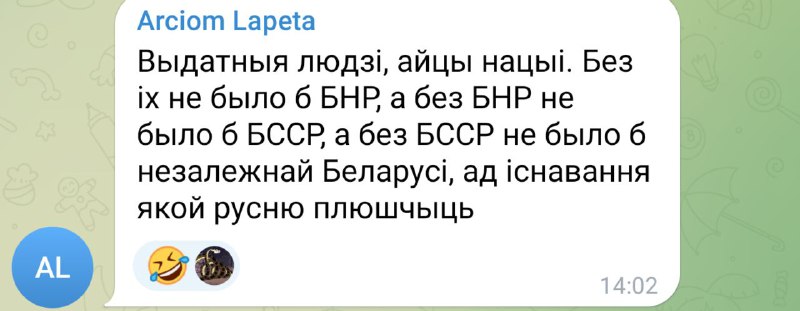group-telegram.com/cat_witness/3248
Last Update:
Как обычно белорусские криптопольские националисты оправдывают деятельность своих предшественников, в том числе тех, кто сотрудничал с кайзеровскими и гитлеровскими оккупантами? По их мнению, без подрывной антироссийской деятельности "нашенивцев", без БНР в 1918 не было бы БССР, а без БССР не было бы независимой Республики Беларусь.
Но кто сказал, что это финальный этап? Если бы это было так, то националисты не тратили бы столько сил и времени на захват власти в РБ, не заваливали бы белорусов ворохом мифов о райской жизни в полонизированных ВКЛ и Речи Посполитой, и вещающий под контролем польских спецслужб экстремистский тг-канал Nexta не гонял бы толпы обезумевших граждан по белорусским улицам в 2020.
Конечная (возможно, не всегда осознанная) цель богушевичей, тёток, ластовских, "Нашей нивы", БНР и их современных последователей состоит в том, чтобы "потопить белорусов в польском море". А иного варианта при отрыве Белоруссии от общерусского языкового, культурного и исторического материка и быть не может.
BY 🇧🇾 Капитан Очевидец 🇷🇺

Share with your friend now:
group-telegram.com/cat_witness/3248
